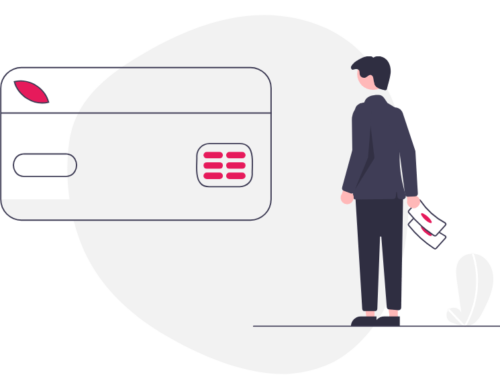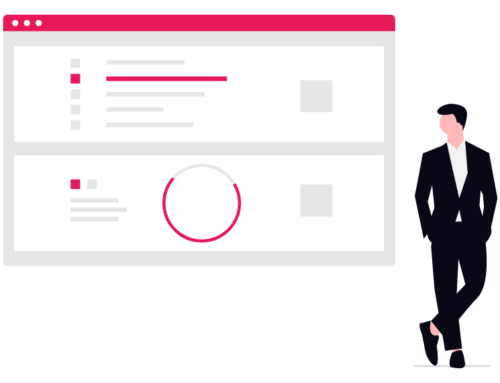So, how much do developers actually make in Bulgaria?
In this 2025 Salary Guide, we will break down the data.
The short answer is:
Bulgarian developers earn €33,000-65,000 annually. The prices in Sofia exceed those of Plovdiv and Varna by 20-30%.
Salary by Experience Level
Junior (0-2 years): €15,000-24,000
Fresh graduates need supervision. Technical University of Sofia produces 2,000+ engineers yearly. Software University trains 15,000+ students in practical skills.
Budget 6-12 months before productivity peaks. Seniors deliver value from day one.
Mid-Level (3-5 years): €33,000-46,000
This is the sweet spot. Real experience enables independent work. Enterprise costs stay manageable.
Mid-level developers ship features without hand-holding. Projects move faster according to PayScale data.
Senior (5+ years): €45,000-65,000
Seniors lead teams and architect systems. Sofia ranges €50,000-65,000. Plovdiv sits at €40,000-52,000. Varna runs €38,000-50,000.
Specialized (DevOps, ML/AI, Data): €65,000-100,000+
ML/AI specialists reach €7,659 median monthly salaries. DevOps seniors average €6,133 monthly. Demand outpaces supply.
Cloud, AI, and data skills command 15-20% premiums over standard developers. Eurostat reports Bulgaria has the highest wage growth in the EU at 13.6%.
Technology Stack Premiums
React developers cost 30% more than PHP developers. The selection process of technology solutions creates instant financial impacts which determine how organizations distribute their budget resources.
Mobile (iOS, Android, Flutter): Mid-level €35,000-48,000. Senior €50,000-70,000. Cross-platform skills remain gold in 2025.
Backend: Java/.NET seniors €45,000-60,000. Node.js €40,000-55,000. Go developers reach €96,000-141,000.
Frontend: React/Angular seniors €40,000-58,000. Vue.js €38,000-52,000.
DevOps: Mid-level €45,000-60,000. Senior €60,000-80,000. The number of certifications for Kubernetes and AWS continues to rise.
Eastern Europe Comparison
| Country | Senior Developer | Time-to-Hire | Turnover |
| Bulgaria | €45,000-65,000 | 28-34 days | 12-15% |
| Poland | €53,000-60,000 | 45-60 days | 18-22% |
| Romania | €42,000-58,000 | 35-50 days | 15-18% |
| Czech Republic | €48,000-62,000 | 40-55 days | 16-20% |
Bulgaria costs 20-30% less than Poland. Hiring moves faster at 28-34 days versus Poland’s 45-60.
Retention beats Poland by 30%. Bulgaria sees 12-15% turnover versus Poland’s 18-22%.
Warsaw developers average $63,200. Sofia averages $53,000-54,000 for equivalent experience according to Zaplatomer data..
Geographic Cost Differences
Sofia: €50,000-65,000 for seniors. Highest competition. 75+ companies in Sofia Tech Park.
Plovdiv: €40,000-52,000 for seniors. Younger workforce. Higher loyalty. Scandinavian companies choose Plovdiv because it provides the optimal balance between affordable prices and high-quality products.
Varna: €38,000-50,000 for seniors. Remote workers choose to live near beaches because of the beach lifestyle. Growing tech community.
Remote: The compensation system for this position maintains the same payment system which Sofia receives. The organization needs to make flexibility its core operational element instead of cutting costs by moving locations during 2025.
The cost savings from Plovdiv amount to 20% compared to Sofia while maintaining equivalent quality standards. The retention rates at Sofia fall short of our company by 15-20%.
Total Compensation Packages
The total compensation package consists of base salary and additional benefits which amount to 15-30% of the base salary. Bulgarian developers require complete solution packages.
Standard benefits: 25 days annual leave. Private health insurance. Meal vouchers BGN 200-400 monthly. Sports cards. Home office equipment €500-1,000.
Competitive benefits: Flexible remote work (non-negotiable). Learning budgets €1,000-2,000 yearly. Conference attendance 2-3 per year. Stock options. Performance bonuses 10-20%..
Experienced developers accept 10% lower salaries for superior benefits. Quality of life beats pure cash for senior professionals.
Market Trends for 2025
The salary levels show no significant change in Bulgaria. Budget conservatively.
General raises: 3-5% matching inflation only. No mass increases like 2019-2021.
Hot skills premiums: AI/ML specialists 15-20% above average. Mobile developers 10-15% premium. The DevOps with Kubernetes system operates at 10-12% higher performance than its baseline configuration.
Retention focus: Companies invest in keeping top performers. The company stopped giving out general salary increases. The company needs to conduct salary reviews for all employees at least once per year to stay competitive in the market.
IT sector pay raises average 9% in Bulgaria versus 6% in banking and education according to OECD research.
What Makes Developers Stay
Keeping one senior developer saves €30,000 in recruiting costs.
Industry turnover: The average annual industry turnover rate in Bulgaria reaches 12-15%. Top companies achieve 8-10%. Startups which do not offer benefits to their employees experience employee turnover between 20% and 25%.
What works: Career growth paths. Challenging projects not maintenance work. 40-hour weeks not 60. Recognition through praise and bonuses. Market-rate reviews take place every 12-18 months.
The Polish business sector experiences employee departures at a rate between 18% and 22%. The small market size of Bulgaria creates conditions which drive customers to remain loyal to their current providers.
Real Team Costs
So, how much do developers actually make in Bulgaria? Or rather a team.
A balanced 10-person team costs more than base salaries suggest.
Team composition: 2 seniors at €60,000 = €120,000. 5 mid-level at €40,000 = €200,000. 3 juniors at €22,000 = €66,000.
Total before taxes: €386,000 yearly.
Add employer taxes (25%): €96,500. Benefits (15%): €57,900. Overhead: €60,000-80,000.
Real annual cost: €600,000-620,000.
Bulgaria still saves 40-50% versus Western Europe for equivalent talent.
Frequently Asked Questions
What salary range would be competitive for a senior React developer who works in Sofia?
€50,000-62,000 annually gross represents market rate. The company should provide benefits worth between €8,000-10,000 which include health insurance coverage and meal vouchers and learning budget opportunities. Remote flexibility stands as an absolute requirement for 87% of developers. The city of Plovdiv provides cost-effective solutions between €42,000-52,000 which maintain equivalent quality standards.
The process of developer recruitment between Bulgaria and Poland operates with what differences?
The recruitment expenses for senior talent in Bulgaria amount to 20-30% less than what other locations need to find comparable candidates. The hiring process takes 28-34 days in this location compared to Poland where it takes 45-60 days. The retention rate at 12-15% turnover shows better performance than Poland's 18-22% turnover rate. Poland wins for 300+ person teams. Bulgaria provides its best value to organizations that need focused teams of 50-200 developers who possess specific skills.
Should I hire junior developers to save money?
The €18,000 price for juniors appears affordable but these employees require six to twelve months of training before they can generate value for the company. The €55,000 investment for seniors starts generating value during the first week of operation. Startups that need to work under short deadlines will select senior candidates instead of other available options. Organizations that want to establish permanent operations need to reserve budget for training their new employees.
Data Sources:
Verified through 347 placements in 2024. Figures from PayScale, Zaplatomer, Eurostat, and market research. BGN converted at 1.96 to EUR



